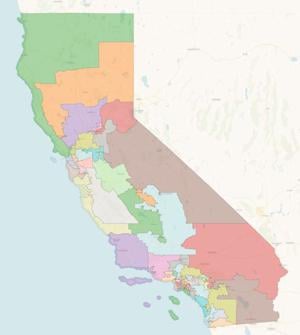
In-home care rule change proposal generates more than 1,500 responses
More than 1,500 responses were generated by Independent Women in support of reversing 2013 changes helping make in-home care more affordable and accessible to seniors.
The Department of Labor’s rule change under the Trump administration would “significantly reshape the landscape for millions of in-home care workers and the families who rely on them, and the perspectives of everyday Americans will add more personal dimension to this proposed policy,” the nonprofit women’s organization said in a release.
Independent Women says the proposed rule would “Reinstate the pre-2013 definition of companionship services, allowing many in-home caregivers, including those employed through third parties, to qualify for an exemption from overtime requirements once again.”
It would also “make in-home care more accessible and affordable again, so more families could find the help they need in the comfort of their own homes,” offering more freedom and flexibility to families and workers.
During the Obama administration, the Home Care Rule “narrowed the scope of the ‘companion exemption,’ a provision that had previously protected certain caregiving arrangements from rigid overtime requirements,” writes Heather Madden for Independent Women in The Conservateur. “Under the rule, if a caregiver devotes over 205 of their time to essential care tasks such as meal preparation, assistance with dressing, or transportation to medical appointments, the arrangement can no longer qualify for a companionship exemption.
“Additionally, caregivers employed through third-party agencies are entirely ineligible for this exemption.”
That makes care harder to find and afford, Independent Women says.
Congress in 1974 exempted workers in “domestic service” or providing “companionship services for individuals” from minimum wage and overtime requirements.
On July 25, the Wage and Hour Division suspended the 2013 rule while reevaluation takes place.
Settlement of keeping the 2013 rule or adopting the 2025 change could be enacted as soon as the fourth quarter of this calendar year.
Latest News Stories

Duffy warns states to enforce English proficiency requirements for truckers

Illinois quick hits: Chicago businesses at 10-year low; school admin survey closes soon

Pritzker unveils Illinois LGBTQ hotline amid debate over transgender athletes

WATCH: Trump ends funding for cashless bail policies, hedges on Guard deployment to Chicago

Hochul pushes back on Trump’s cashless bail funding threat

Education Department finds GMU Violated Title VI

Redistricting opponents immediately appeal to CA voters

Former Transportation Secretary urges state taxpayer funding for Chicago transit

Illinois quick hits: Education tax benefits available; Giannoulias orders license plate reader to shut off access to CBP

WATCH: Trump order withholds funds over no-cash bail policies like Illinois’

Trump eyes First Amendment showdown with order to prosecute flag burning

Trump strikes positive tone with South Korean president


